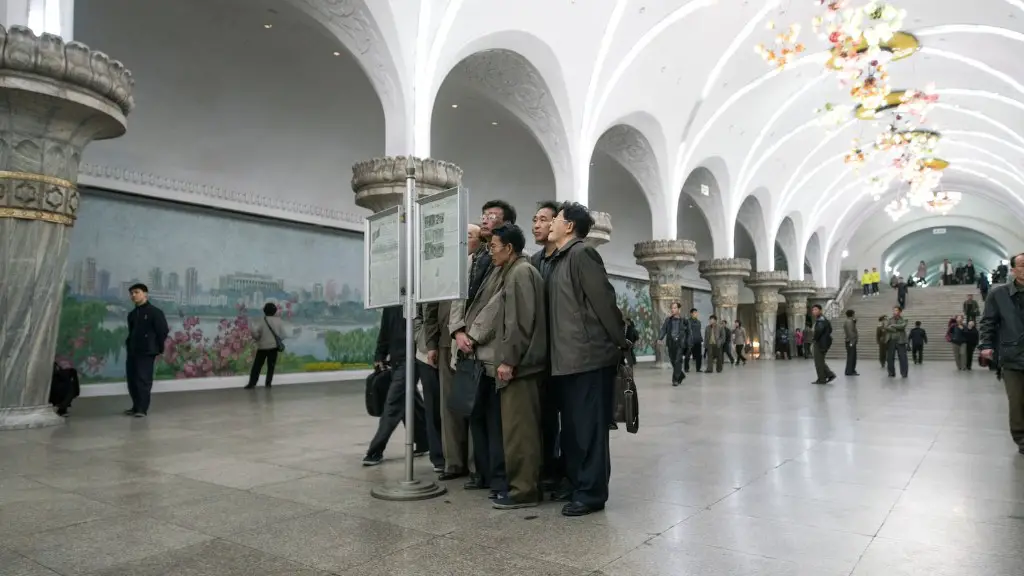Growing up as a major world power and occupying vast amounts of territory, China is often seen as an influential nation when it comes to international affairs. When some countries like the US, Australia and the EU are exerting pressure on North Korea’s Nuclear Weapon and Ballistic Missile Programs, China is perceived as one of the few countries actively supporting North Korea. This article attempts to analyze the political, economical, and strategic reasons why China is still the leading supporter of North Korea.
In terms of political matters, China’s motivation stems from their traditional political ideology. China has had a relationship with North Korea since it was formed in 1948. They have a shared history, ideological view, and an alliance that is based on traditional principles of “Friendship and Alliance”. The Chinese government has declared that they will never allow foreign interference in North Korea and firmly back their ally as a strategic buffer against external pressures. As such, it can be argued that China has kept North Korea as a shelter and a bulwark, representing a geo-political stronghold for their own future.
Moreover, there are strong economic reasons for China’s support of North Korea. North Korea sits on the border between the two Koreas, and the Chinese government has taken advantage of this strategic location to develop and maintain close economic ties, making it a profitable market for both countries. China is North Korea’s biggest trading partner,as it ships to North Korea essential items such as food, water, fuel, and materials for their ballistic missiles and nuclear weapons programs, which is in direct violation of UN international law. In addition, China has become a major partner of the North Korean economy, developing various projects such as tourism, rebuilding the infrastructure, and constructing new communities.
Lastly, China’s decision is also motivated by a secure-survival strategy. By remaining a strong ally of North Korea, the Chinese government communicates to the rest of the world and particularly to the United States, that it is a powerful protector of its allies, and that military action against its interests will be met with stern measures and consequences. China is in a complex power struggle with the United States, and if the US were to try and invade North Korea, it could spark a direct conflict with China. This could be disastrous for China and could lead to severe consequences for their international standing and credibility. This is a powerful driving factor behind China’s unwavering support for North Korea.
International Perspective
From an international perspective, China’s support of North Korea has become a major obstacle to the progress of international efforts to de-nuclearize North Korea. China’s political, economic and strategic stance on North Korea’s activities flies in the face of UN sanctions that are intended to send a clear message of disapproval and to exert pressure on North Korea to denuclearize. The Chinese government appears to be unwilling to take a stronger stance on North Korea, as any pressure would, in the opinion of the Chinese, be detrimental to the interests of China itself. Furthermore, China is resistant to any pressure from the US or other Western countries to take drastic action, as this could lead to an unpredictable crisis in the region, especially in terms of security concerns.
Global Response to Chinese Involvement
The international community has grown increasingly concerned with China’s involvement in North Korea and have urged the country to continue to support diplomatic efforts aimed at the convergence of the two countries and the de-nuclearization of North Korea. However, China continues to remain silent on the issue and has yet to take a concrete position in regards to North Korea’s nuclear programs. In response, the US, the EU, and Japan have joined forces and imposed sanctions on Chinese companies that are believed to be providing material and financial support to North Korea’s nuclear weapon and ballistic missile programs.
Recent Developments
Despite how China has tried to stay out of the conflict, recent developments have seen the Chinese government slowly begin to speak out against North Korea’s actions. This may have the potential to have an effect on the international community and force North Korea to take a more cautious approach to its provocative behavior. In June of 2020, China joined the United States and the United Nations in condemning North Korea’s multiple ballistic missile launches, which was seen as a major step forward in terms of Chinese foreign policy.
Implications
China’s stance on North Korea has serious implications for the resolution of the North Korean nuclear crisis, as a unified Chinese leadership along with the united forces of the international community would be the most effective way to terrify North Korea into ceasing its nuclear missile ambition. As such, the international community is looking to China to seriously reconsider its diplomatic approach towards North Korea and make a commitment towards using its influence towards a peaceful resolution to the crisis.
Analysis of Chinese Actions
China is clearly in a complex power dilemma and the recent developments suggest that the Chinese government is slowly beginning to pivot to a more prudent and responsible role in the North Korean crisis. One must, however, note that the Chinese government’s actions should be closely monitored as the government has a strong tendency to act according to its own interests as opposed to what is in the best interests of the international community. Going forward, it is important for the international community to speak with a unified voice and put pressure on China to commit to a non-aggressive path.
Western Attempts to Establish Contact
The United States and its Western allies have attempted to establish contact with China in terms of North Korea, but due to the complexities of the geopolitical negotiations, it has been difficult for the two sides to reach an agreement. Instead, the West has focused on gradually increasing economic and diplomatic sanctions on North Korea as a means of deterring its nuclear behavior, while also attempting to pressure China to accept certain restrictions on its trade with North Korea. While the effectiveness of these attempts is yet to be seen, they may have the potential to weaken North Korea’s behavior in the long run.
Conclusion
The Chinese government’s strong show of support for North Korea is motivated by a combination of political, economical, and strategic factors. China perceives North Korea to be an ally, and the Chinese government has taken advantage of this relationship to develop close economic ties, making it a profitable market for both countries. China is in a complex power situation, but recent developments suggest that the Chinese government is slowly beginning to pivot to a more prudent and responsible role in the North Korean crisis. However, it is important for the international community to speak with a unified voice and put pressure on China to commit to a non-aggressive path.


